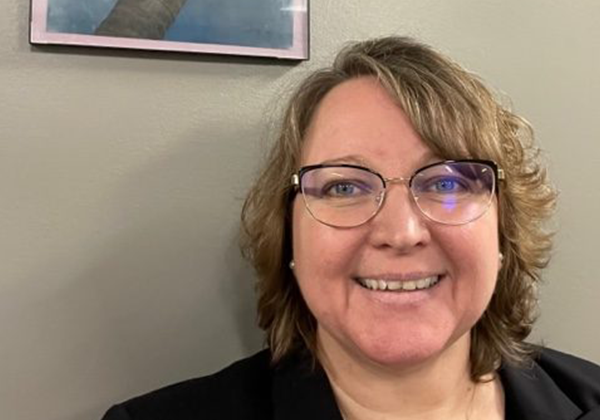
By Susan O'Rourke | March 15, 2022
Global education provides the opportunity for mental and emotional growth that allows for a person to have empathy for others and an understanding that there are so many different perspectives on how to survive and thrive in our world. Global education provides a solid foundation for our future leaders to understand the immensely diverse population of people we serve daily in our communities in order to make the best decisions for all of their people instead of just a few.
This March, UNC World View is thrilled to feature the work of Dr. Tabitha Miller in our Educator Spotlight.
Dr. Miller is the Associate Vice President of Academic Affairs and Chief Academic Officer at Martin Community College (MCC) in Williamstown, North Carolina. Dr. Miller notes that MCC “serves both Martin County and the southern portion of Bertie County, including Bertie High School and Bertie Early College.”
Dr. Miller has long been a passionate supporter of global educator and collaborator with UNC World View. Dr. Miller “first became involved with World View in 2011 while working at “Pitt Community College (PCC) [as] the English/Study Abroad Faculty member.” From there, Dr. Miller “began attending symposiums, and during one of them learned about the concept of globalizing curriculum.” That concept stuck with Dr. Miller and she subsequently “attended a presentation by the American Red Cross to learn how [she] could include information about the refugee crisis in my course.” That initial spark led Dr. Miller to work with and receive support from UNC World view to “[globalize her] HUM 115: Critical Thinking class by creating the module ‘Forced from Home’ where [she] discussed with students International Humanitarian Law, Human Rights Law, and the difference between being an internally displaced person versus a refugee. The culminating project for the module was the students creating a refugee camp that met the basic needs of the people while assisting them with maintaining their dignity.”
Dr. Miller emphasized that collaboration was foundational to the development of the Scholar of Global Distinction program. She recalls that after “[she and her fellow faculty member,] Katherine Clyde” (who currently serves as Dean of Pitt Community College) “attended the Red Cross presentation together” and heard about the upcoming pilot of the Scholar of Global Distinction program “[they] both quickly raised [their] hands,” eager to support global education in North Carolina community colleges. Their leadership and dedication to the Scholar of Global Distinction program was crucial to both serving students and creating a network of support for faculty. Dr. Miller recalls that they “worked individually with faculty to garner support to bring the Scholar of Global Distinction program to PCC. In 2015, [they] were given permission to present to the PCC Board of Trustees the plan to bring the SGD program into fruition at PCC. The program was approved, and [they] began providing campus-wide professional development and training for faculty to globalize their curriculum.”
Dr. Miller’s passion for global education, leadership, and support for collaboration were evident again in 2019 when she moved to MCC. She explains that she “immediately began discussing the need for us to be engaged with World View and to become a Scholar of Global Distinction school.” She received strong support from Rhonda Breed, an instructor at MCC,” and together they are “spearheading the efforts to globalize the MCC curriculum and graduate students who have earned the Scholar of Global Distinction.” Under their leadership, MCC instructors are receiving support “to add global content to their courses so that they will be able to assist training other faculty to be inclusive, as well.” Dr. Miller and her collaborators also received “a state library grant” that enabled “MCC [to bring] cultural programming to the students via live lectures, performances, and workshops with experts from Eastern North Carolina.” These experiences help students see how global truly is local.
Dr. Miller offers dual encouragement to other leaders in higher education and faculty looking to bring more global learning to their campuses and courses. First, she recommends that leaders and faculty “immerse themselves into World View: attend the presentations, the lectures; encourage and support others at their institution to engage with the World View community; reach out to those who have already laid the ground work; collaborate; listen; learn; act.” Secondly, Dr. Miller emphasizes the importance of securing donor-led funding for students otherwise unable to participate in global learning experiences abroad. She recalls that, “during [her] time directing the Belize Service Learning Study Abroad trips at PCC, the trips [she] felt were most impactful were those that included scholarship students who would have never been able to travel otherwise without the scholarship funds.” She notes that this financial assistance “[makes] the difference for a student who desires to learn more and see more.”
For Dr. Miller, global learning both at home at abroad, is critical to helping students “understand just how intertwined our world is….Global education provides the opportunity for mental and emotional growth that allows for a person to have empathy for others and an understanding that there are so many different perspectives on how to survive and thrive in our world. Global education provides a solid foundation for our future leaders to understand the immensely diverse population of people we serve daily in our communities in order to make the best decisions for all of their people instead of just a few.”
We couldn’t agree more, and we are so grateful for the community of global educators Dr. Miller has helped to develop!
